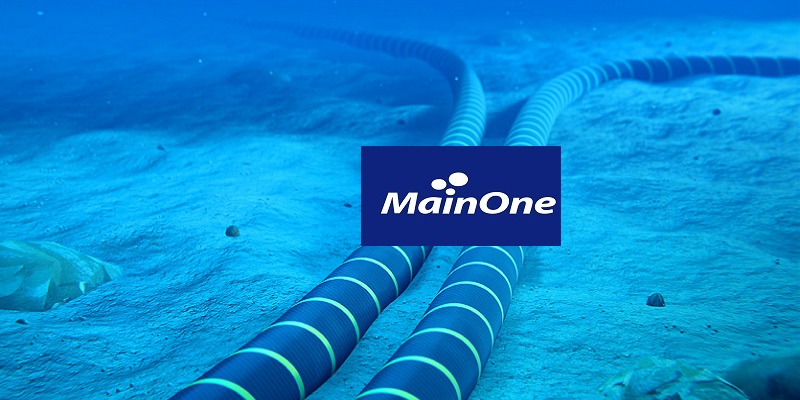MainOne, a provider of internet services to many parts of western and southern Africa, said it observed stability on its network across the region on Monday morning, according to a statement posted on its X handle on Monday.
“MainOne worked with regional partners late last week and over the weekend to reroute traffic with restoration capacity and our observations are that we have stability on our network across the region this morning,” it said in the X handle statement.
The company said these developments represent a significant milestone to ensure continued connectivity for the West African business community.
“We are actively working with our maintenance partners, vessel owners and permitting authorities to expedite the repair of our submarine cable. We are very optimistic that our cable will be repaired as planned and services fully restored so that we can continue to operate with the continued integrity of the submarine cable.
“We want to assure the West African business community and the public that the region remains open for business. We will continue to provide updates on the progress of the repair efforts through our website and social media channels. We appreciate your patience and understanding,” the company said.
Last Friday, MainOne reacted to the outage experienced on its network on March 14, 2024, explaining that preliminary findings and further investigations revealed that the fault occurred due to an external incident that resulted in a cut on its submarine cable system, in the Atlantic Ocean offshore Cote D’Ivoire, along the coast of West Africa.
The company, however, said that it has a maintenance agreement with Atlantic Cable Maintenance and Repair Agreement (ACMA) to provide repair services for the submarine cable, which it said might take one to two weeks to complete.
“We have a maintenance agreement with Atlantic Cable Maintenance and Repair Agreement (ACMA) to provide repair services for the submarine cable. First, identify and assign a vessel, the vessel has to retrieve the necessary spares required for repair, and then sail to the fault location to conduct the repair work.
“Next, to complete the repair, the affected section of the submarine cable will have to be pulled from the seabed onto the ship where it will be spliced by skilled technicians. Post repair, joints will be inspected and tested for any defects and then the submarine cable is lowered back to the seabed and guided to a good position.
“This process might take 1-2 weeks for repairs while about 2-3 weeks of transit time may be required for the vessel to pick up the spares and travel from Europe to West Africa once the vessel is mobilised,” the company said in a statement.
While providing insights on what could have been the likely cause of the faults in the Sea, MainOne said most submarine cable faults occur as a result of human activities such as fishing and anchoring in shallow waters near shore, natural hazards such as earthquakes, landslides, and then equipment failure.
“Given the distance from land, and the cable depth of about 3 km at the point of fault, any kind of human activity – ship anchors, fishing, drilling, etc has been immediately ruled out. Our preliminary analysis would suggest some form of seismic activity on the seabed resulted in a break to the cable, but we will obtain more data when the cable is retrieved during the repair exercise,” it explained.
While dismissing any insinuations linking the cable cut to an intentional act, it stated that given the location and cable depth, it has strong indications of probable cause. It, however, admitted that international services on its cable south of the landing in Senegal have been disrupted, resulting in the outage of internet services for the majority of its customers.
“We recognize the impact of the outage and are working tirelessly to make available restoration capacity for temporary relief, where feasible. While we do have some pre-configured restoration capacity on other cable systems, unfortunately, those cable systems are also down currently. We have since acquired capacity on available cable systems, but we have not found readily available capacity to fully restore services to all our customers,” the company said.
MainOne said it has already declared a force majeure event after testing of the cable system and when it had enough technical data from the preliminary assessment to indicate some underwater activity was the likely cause.
“We believe it is important to inform our customers of the fault details given the magnitude of the situation to set expectations and make contingency arrangements while the repairs are ongoing. Nonetheless, we are working to provide restoration services to as many of our customers as possible, and to complete the repairs to the cable system in record time,” it said.
The company assured its teeming customers that it is actively restoring services to the extent possible and is mobilising a vessel for repair and will update once there are more details.
In the meantime, it says that its cable is very well protected and that it has taken the lead in West Africa in championing the International Cable Protection Committee (ICPC) and organising submarine cable owners associations in Nigeria and Ghana, which promote awareness of the strategic benefits of submarine cables and proactive regulations and measures to minimize submarine cable damage.
“We are very optimistic that our cable will be repaired as planned and services fully restored so that we can continue to operate with the continued integrity of the submarine cable,” MainOne assured.

